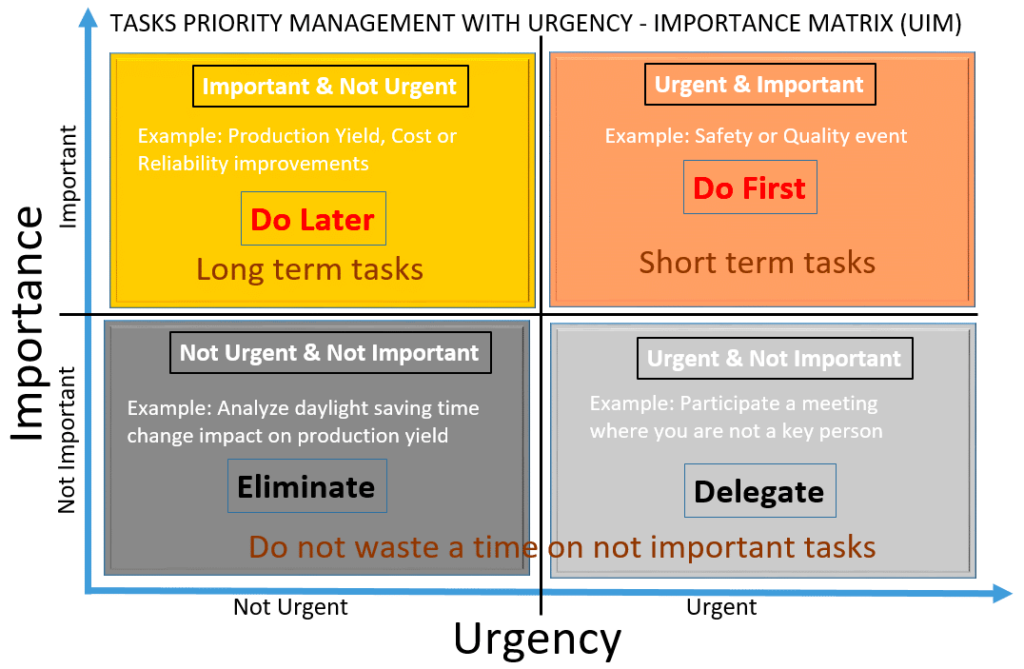I am going to go out on a limb and say that everyone in the world believes they need to manage their time better. The challenge here is that time management has little to do with time and everything to do with our behavior, habits, and ability to change them. There’s endless information and entire courses about time management. But to keep things simple, here are a few basic, tried-and-tested time management tips that always work.
Table of Contents
1. Define Your Goal
There are many time management tips Everyone wants to have more free time and everyone believes they could optimize their day. But these aren’t goals. Time is valued by how we use it. So why do you need more time? Do you want to create a startup? Add a freelance job to secure a better income? Get another degree? Dedicate more time to your children? Exercise more?
All perfect, simply pick one specific goal to effectively optimize your schedule. Even if you want to achieve two or more goals, start with one and once you feel that your current lifestyle is sustainable, begin working on achieving more goals.
2. Analyze your time spending
You can’t fix a problem if you aren’t sure what it is. Before jumping into anything, spend a few days simply recording everything you do. I prefer to use clockify to monitor and record my daily activities. but you will find many other free apps as well.
You don’t have to be very precise, simply record everything as best you can. Ideally, spend one full week recording your daily activities, this allows you to build an effective time management plan. Other than understanding how your day functions, this exercise will help you pinpoint what I like to call “opportunity time” slots. No one is absolutely occupied the entire 24 hours, if you analyze your day carefully you will find a few hours where you are completely free.
True, the time slots you deem empty could be broken into small bits; however, combined these bits could amount to several hours a day.
Once you record your daily activities, precise habits will become clear.
For example, you discovered the following:
- You spend 30 minutes up to 1 hour 30 minutes just getting the children out of the house and to school in the morning
- No matter how hard you try you have an average of 1 hour each day wasted on useless communication (calls, WhatsApp,…etc)
- Your total commute for the day is around 1.5 hours
- Your coffee breaks amount to only 20 minutes per day
- A typical grocery shopping trip is around 3 hours
- You need a total of 5 hours a day completely dedicated to your children.
- Opportunity time (available time) is collectively 3 hours a day, but broken into small intervals you don’t notice it
The above are the findings of a very busy working parent. It would be unrealistic to plan a one-hour exercise routine in the morning and still manage to get the kids to school, make it to work on time, and have that be a sustainable lifestyle.
The point here is to determine which tasks need to remain as is and which things can be moved around to allow enough time to accomplish new goals.

3. Start small
Congratulations, now you know what your goal is, your unmovable daily demands, and your opportunity time. Let’s assume you need two hours a day for your new project: freelance work or launching a new startup.
Remember the bits and pieces of “opportunity time” you had in your day? Now, what tasks can you move around to combine longer periods of available time for you?
Aim to change one to two things in your day. Once that becomes your new routine, build on it.
4. Don’t Multitask, block time slots instead
Multitasking is a skill—or a reality—all women share. Unfortunately, studies have shown that it’s a huge time waster. According to a 2019 paper called “Multicosts of Multitasking”, our brains are incapable of performing more than one task at a time, we simply switch back and forth between tasks.
Aim for the absolute opposite of multitasking, block time slots where you don’t take calls, where the kids aren’t allowed to speak to you, where you are focused on one very specific task.
The more you increase your focus on one task, the faster you will complete it and often with better results.
Block on your public calendar 30-minute intervals throughout the day where you are focused on replying to emails, or two hours each day to finalize all your reporting, whatever your daily tasks are this trick could reduce the amount of time you need for your day job.
5. Prioritize, prioritize, prioritize
The most useful time management tips for me is prioritize. At the beginning of each day, set one to two main tasks to accomplish. Many fall in the common trap of filling your to-do list with small tasks that don’t really accomplish big-ticket items. Focus on getting important things done, whether in your work, side project, or personal life. Many people are familiar with the Eisenhower’s Urgent/Important Principle, the key message are in the below picture, “Do not waste a time on not important tasks”.

6. Your Productivity Zone
Did you know that you have a time that you are the most productive and focused? There are usually a few hours per day where you tend to work better, that’s not due to your routine or the ambiance around you. Your ability to produce is optimized during those hours. The good news is that you probably know what time of day that is.
It is important to schedule tasks that require more creativity or analytical thinking from you during those hours.
7. Spot Opportunities for Time-Saving
The ideas here are endless and only you know exactly what would work best for you and your family. Ideally, try a bunch of ideas and maintain the ones that significantly save you time and effort.
Examples include: weekly meal preparation; one grocery trip every two weeks; move your exercise time during your children’s sports or music practice.
8. Delegating
You cannot do everything, even if you want. If your startup requires a lot of time to secure social media content, hire freelancers to handle that. If following up on clients’ payments is a time-waster, ask a friend to help out in return for a percentage.
Delegation isn’t only for professional tasks. If it takes around three hours to keep house every day, then increase the list of chores you assign your children.
Conclusion
Finally, remember that optimizing your time shouldn’t come at the expense of your comfort and stress levels. In fact, it’s completely the opposite. Your schedule should help you stay relaxed while you achieve your goals.
Do you also have time management tips to share? Leave us a comment below!
About Me
Hi, there. I am Lin. Together with my husband and two kids, we live in the beautiful Netherlands in Europe. I am dedicated to self-development, creating quality time for the whole family, and fully supporting kids with their potentials and possibilities with all I have learned from engineering, MBA, and 10+ years of working experience in the energy sector.


